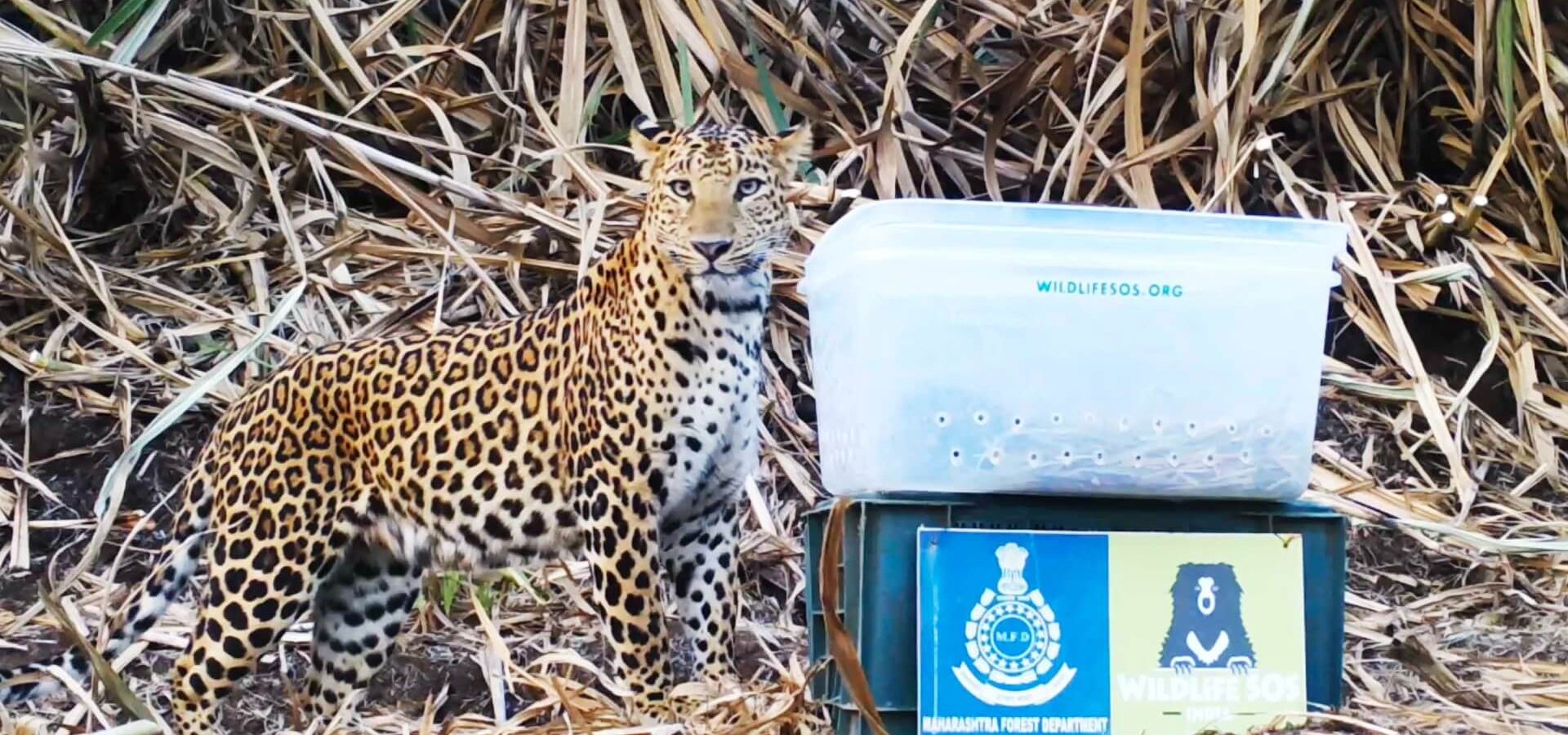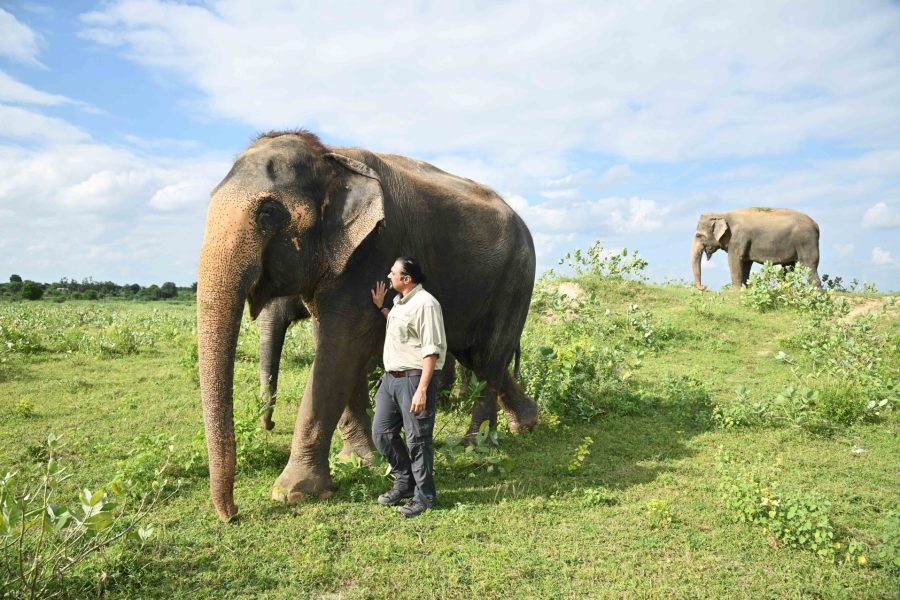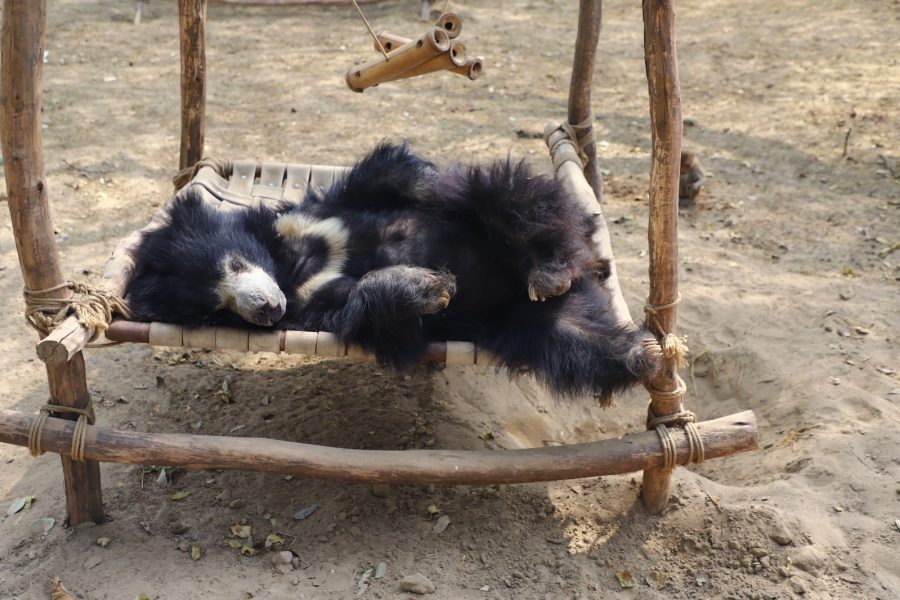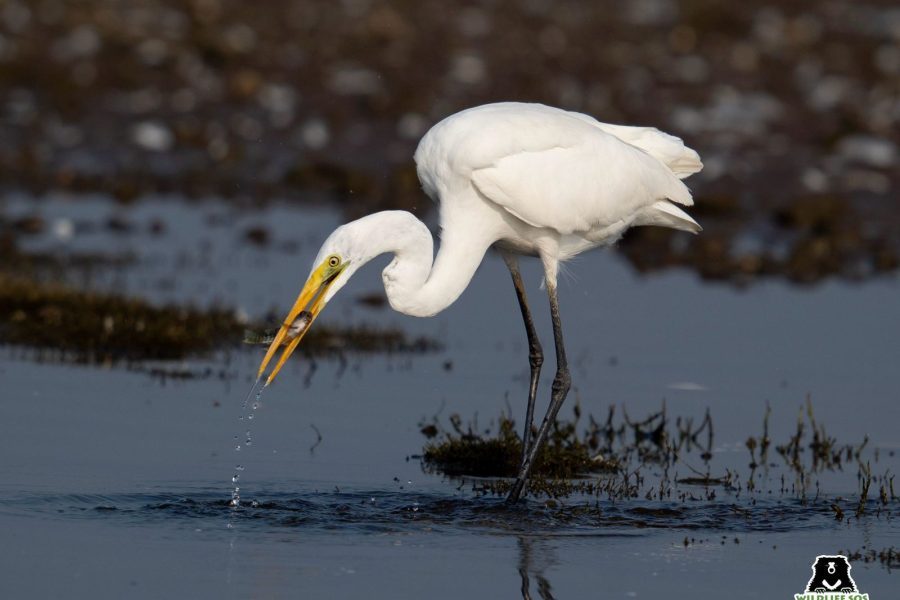The harvest season from December to April fills the farmers with new hopes, each year. In Maharashtra, however, there is a certain adventure involved during this season for the sugarcane farmers. They use utmost care in harvesting the thick stalks of sugarcane that are often the perfect birthing place for expecting leopard mothers. The local communities in Maharashtra are aware of the delicate borders that they share with the elusive cat species – ranging from tigers to leopards and even, the rare, rusty-spotted cats!
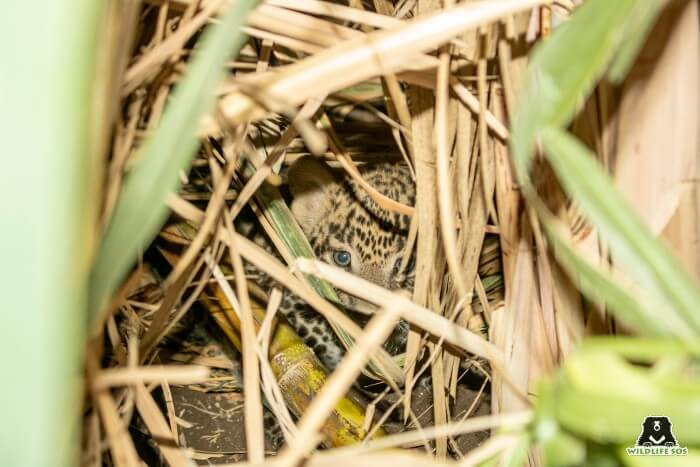
It has been a busy month for our team, operating out of the Wildlife SOS Leopard Rescue Centre in Maharashtra. Each year, when the harvesting season comes to a conclusion, farmers find leopard cubs as young as 15 days to 2 month old in their fields. Mother leopards hunt during the night time and leave their cubs behind, returning the next day after a full stomach to feed the cubs. More often than not, before the mother arrives, the farmers end up discovering the cubs, huddled together right in the middle of the sugarcane field, in severe distress, calling out to their mothers.
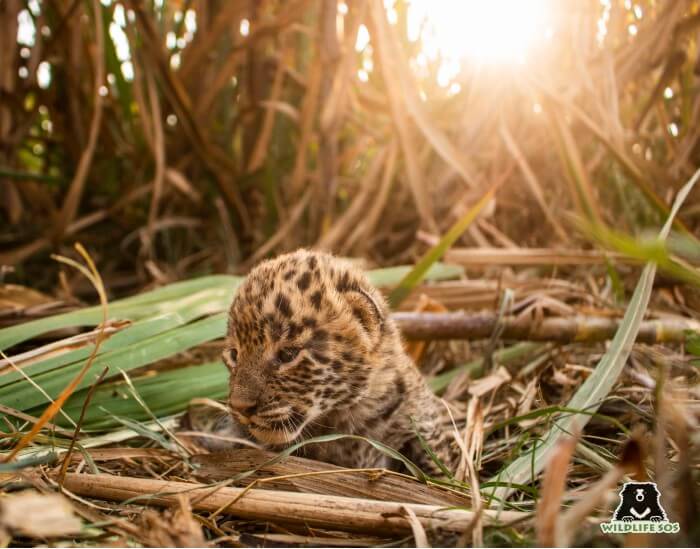
As soon as the farmers reach out to the Forest Department and inform them about the presence of the leopard cubs, the entire Wildlife SOS team springs into quick action, without wasting another minute. The delay in reunions inevitably results in the mother moving further away, not finding her cubs in the same place, which makes it increasingly challenging for the cubs to survive on their own. This also puts them at risk to other predators or even a lifetime of captivity.
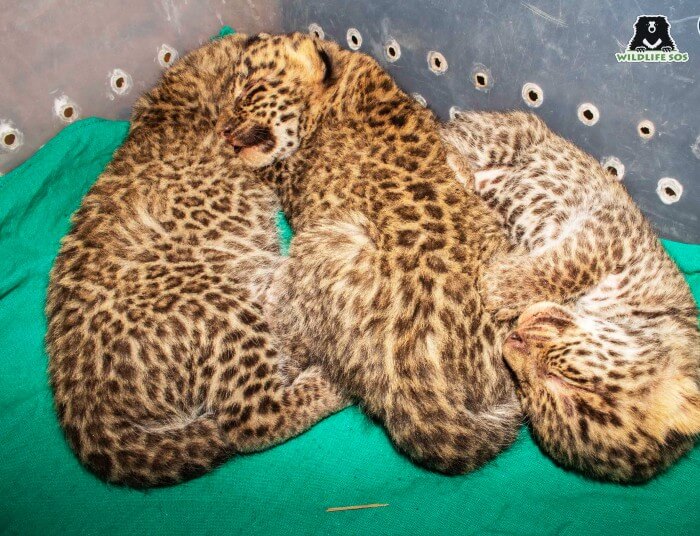
This year, our team with support from the Maharashtra Forest Department and the timely intimation of the farmers, has successfully reunited over 15 leopard cubs with their mothers! The month of March and the streak of reunions started when a farmer spotted three leopard cubs in his sugarcane field while harvesting. Their distressed cries for their mother and upon seeing unfamiliar faces was evident, and the farmers reached out to the Forest Department, who in turn informed our team operating out of the Wildlife SOS Leopard Rescue Centre, in Junnar, Maharashtra.
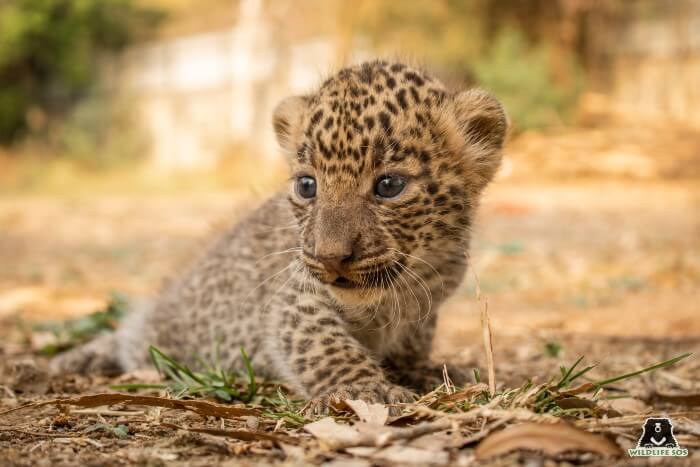
Two rescue units from the Wildlife SOS Leopard Rescue Centre and the Forest Department reached the location, with the necessary medical equipment and kits to examine the cubs. The on-site examination of leopard cubs is conducted to ascertain their age and whether or not they are wounded or suffering from any infection or showing signs of dehydration.
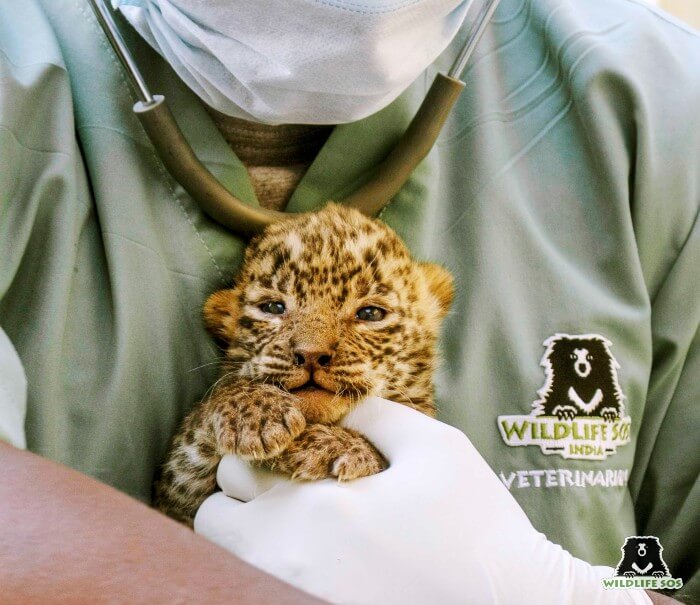
The three cubs, identified as two males and a female, were placed in a safe-box and placed in the same place from where they were found. The worried mother followed the smell of her cubs, who continued to call out to their mother, loudly mewling. She carefully scanned her surroundings and was quick to tip the safe-box over, picking them up, one by one, by the scruff of the neck. We often line the safe box with scent markings like the cub’s urine drops to help the mother leopard locate her cubs, making such reunions easier.
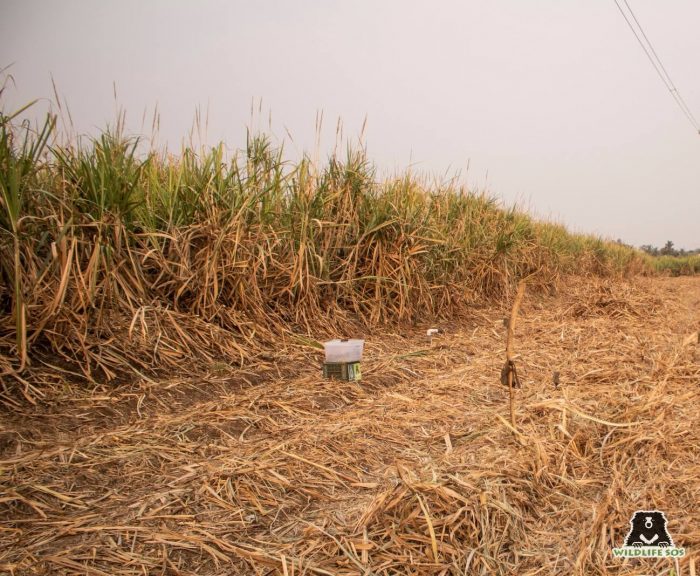
Only three days after this successful reunion, a group of farmers found another leopard cub in a similar situation – left behind by her mother. The cub was found to be a healthy female, barely a month old and the team was ready to get her back to her mother. Leopard cubs stay with their mothers until they are two years old, learning the necessary skills of survival all the while exploring their natural habitat and honing their senses. To avoid situations like that, we undertake every effort to make such rescue and reunion operations possible as a successful reunion also means lesser instances of human-leopard conflict!
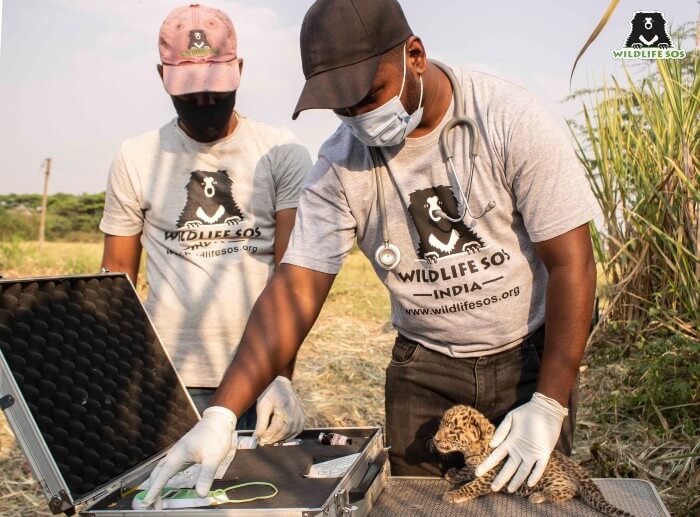
It is very important to note that not every reunion happens in one night, often stretching into the wee hours of the midnight and early morning. This largely depends on how quick the reunion is, which is why our team ensures that it is within the few hours that the cubs are found and in the same area where they are found. In the subsequent weeks, as harvesting of the crop continued, we came across more such cubs.
The youngest cubs that were successfully reunited this harvest season were only 15 days old, barely the size of our palms. The farmer heard peculiar cries emerging from the middle of the field and fund three cubs huddled together, mewling for their mother. The Forest Department and the Wildlife SOS team were informed in a timely manner, and after a thorough medical examination, they were found to be fit for reunion! However, the first attempt at reunion failed as the mother was nowhere to be found, which made the team nervous and anxious about the future of these cubs.
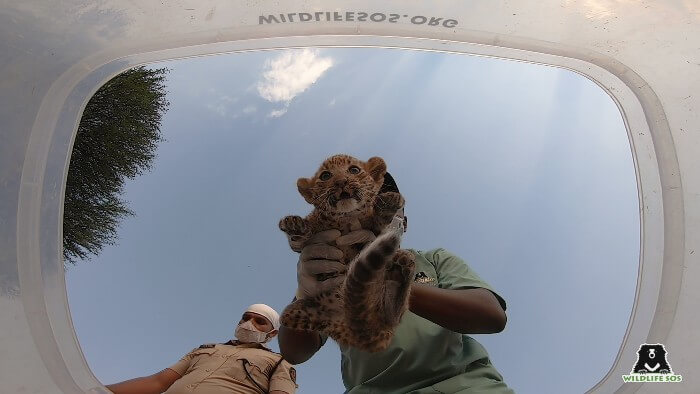
The cubs were kept under medical observation for another day and there was another attempt at reunion for them. With bated breath, our team waited to witness what was going to happen to these cubs, with camera traps in place. There was some movement observed in the sugarcane field and within a few seconds, the mother leopard could be seen gliding through the thickets to her cubs. The cubs, sensing their mother around, were in utter delight, moving around in the safe box, until their mother tipped it over and took them away, very carefully, one by one!
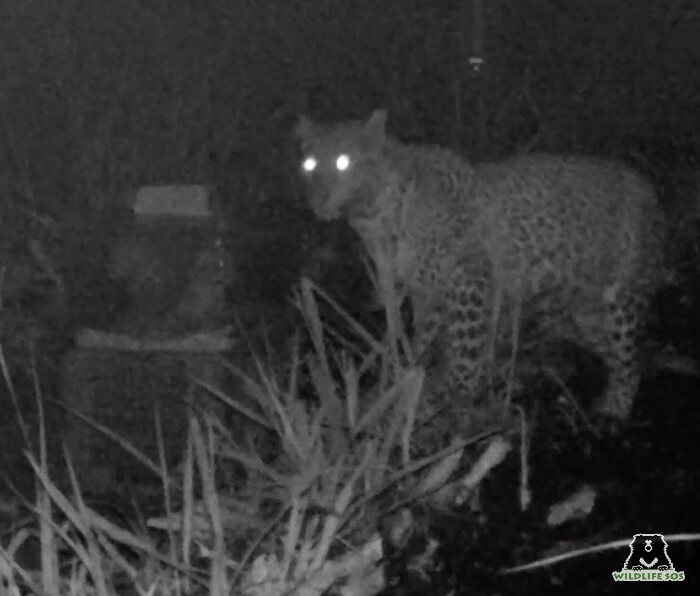
Returning from this heartfelt family reunion, our team was alerted for another leopard cub found in a sugarcane field the same day! The cub was estimated to be 50 days old and was a healthy male leopard, with no ticks or injuries. Following the protocol, the cub was successfully reunited with his mother, walking hurriedly to the surrounding forest after reunion.
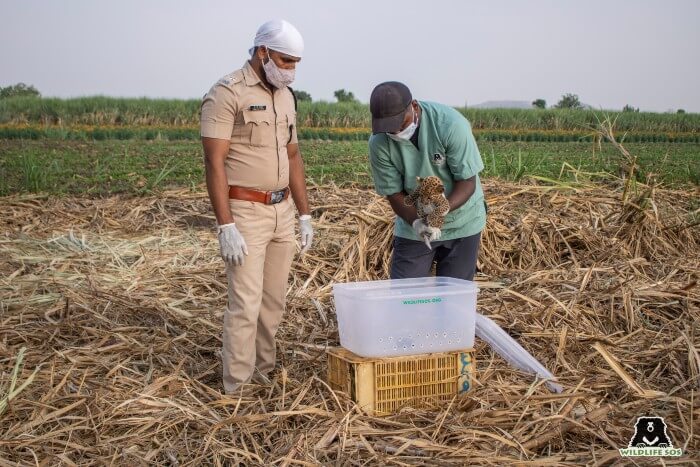
Having successfully brought so many leopard cubs and mothers together, an important part of the process becomes microchipping the leopard cubs. This procedure has been successful in the final reunion of the season when two leopard cubs that were earlier reunited with their mother got separated for the second time. Sugarcane farmers were gathering the last of their harvest when they stumbled up on the cubs in the field. The farmers did not waste another second and reached out to the Maharashtra Forest Department, who were quick to reach the spot along with a team from the Wildlife SOS Leopard Rescue Center.
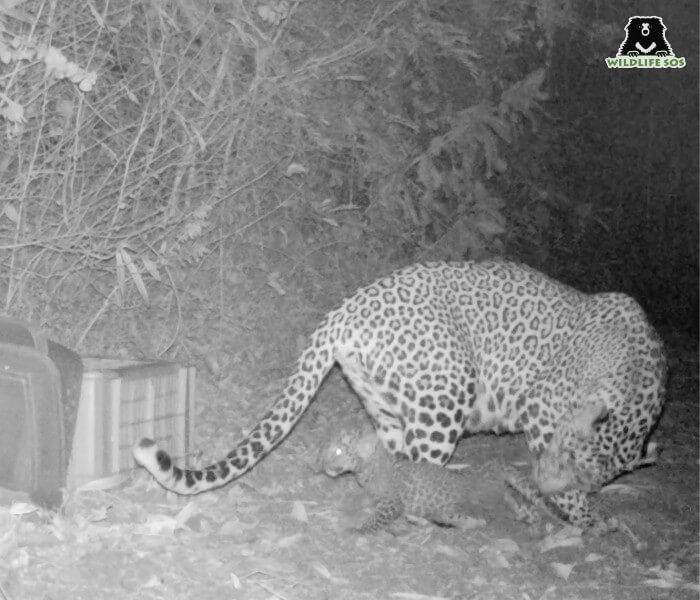
After a thorough on-site medical examination, Dr. Nikhil was surprised to find that they were the same cubs that were previously rescued by the team. The two male cubs were reunited with their mother the same day and our team watched the happy family walk away to the nearby forest!
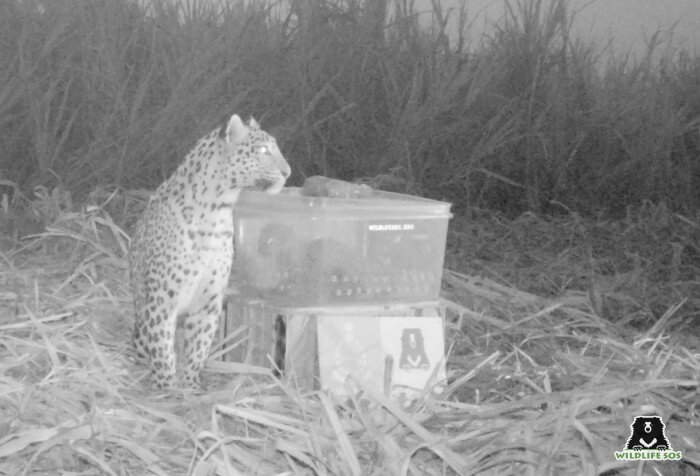
The biggest challenge of these reunions is also convincing the farmers to temporarily halt the harvesting of the crop, until the reunion takes place. This is done, keeping in mind that the mother is able to find her way back to the cubs. The farmers, whose livelihood depends on the seasonal harvest, agree with the proposition with a heavy heart, understanding the sensitive situation they are in. In case the mother leopard does not find her cubs, she may turn to aggression out of helplessness in being unable to find her cubs, frequenting human habitation.

Families, whether in the wild or the ones that surround us, are crucial to us in every way as we learn many important things from them. This mothers’ day, Wildlife SOS celebrates these mother leopards who ensure the continuation of the lineage, birthing healthy cubs, in a rapidly changing world around her. She teaches the cubs how to hunt, how to survive in the tough times of droughts and floods and calamities, she teaches them about the other members of the forest that they call home. These cubs grow up to be stunning adult leopards, continuing to contribute to the forest ecosystem and their population, which hangs by a loose thread.
You can watch all the leopard reunion videos on our YouTube channel by clicking right here. We have compiled a video on the occasion of Mothers’ Day dedicated to the brave, loving leopard mothers who found their cubs.

